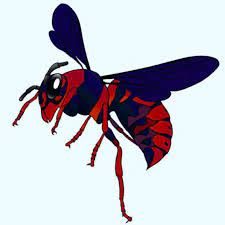by Kaitlynn Davie
When you are 18 years old, everything you have known and are comfortable with,
changes in an instant. You move off to college, hoping for a wonderful new experience,
but change can be scary. For some, they have an activity or hobby that will help them
connect with new friends, and give them hope for an easier transition into college. For
me, this was soccer. Soccer has been a constant in my life since I was four years old. I
go out onto the field, whether I’m alone or with my friends, and clear my head. I can run
around and focus on one thing, not school or friends, but soccer. I look forward to
playing soccer every day and it is something to always be excited about, but it has
added a big responsibility into my life as I have to balance education with sports. In high
school the course load is easy. The AP classes and exams give students some stress,
but the challenge isn’t always there. Going into college is a whole different world where
academic expectations are raised. You are expected to work hard, have go-to resources that
can push you in the right direction with any issues, and just figure out a new lifestyle.
The new academic pressures on top of the raised expectations in a college sport can be
a lot of change, and a lot of stress. Every athlete handles this change differently, and for
some, they may need help adjusting to their new environment.
This is not an issue for solely me or my teammates. There are approximately more than
460,000 college student-athletes in the U.S. (6). This is a great number of collegiate
athletes, in which most will struggle with mental health and keeping a healthy balance of
their responsibilities. The severity of an athlete’s mental health varies. It can drive some
athletes to quit their sport, while others can just have raised stress levels periodically
and be overall unaffected. Everyone has something different going on in their lives, and
we cannot treat mental health the same in every individual, or every athlete. Athletes’
mental health is often pushed to the side, as only 10% of college athletes with mental
health conditions reach for help (5). This statistic must be changed and should be
concerning to coaches and athletic staff across the nation. Many individuals choose not
to reach out as they fear they will appear weak (7). Athletes, and anyone else struggling
with mental health, must learn this is not the case. There are resources available to help that are always open for them (4). The NCAA has put together mental health modules, in hopes of destigmatizing mental health in athletes, and encouraging people to seek help (3). These modules are available for athletic staff and athletes, however, most
individuals are unaware of these resources open to them (1). The NCAA has pushed to
create more resources for mental health, however, most of the resources are not well
known. Athletic programs should discuss with their athletes where to find these
resources and emphasize to them that they should get help when they need it (2).
Some individuals may deny their mental health needs, so staff should be provided with
warning signs to acknowledge their issues and support them, encouraging them to
reach out, showing they are not alone (5).
The Hidden Opponent is a nonprofit organization whose mission is to advocate for
mental health in student-athletes (7). They want student-athletes to know that they are
not weak for reaching out and provide them with support and confidence to seek help
(7). Athletes’ mental health is not discussed enough in most college programs, or well
recognized by staff when one of their athletes is struggling (8). The Hidden Opponent
wants an athlete to be heard within not only their program but to help athletes across
the country (7). The organization has its Campus Captain program which allows for
student representatives at high schools and universities to work with their organization
and raise awareness on their campuses (7). Campus Captains can go to events and
truly change the culture of their schools (7). Athletes are provided a voice and a
platform to share their stories in hopes of inspiring others to share their stories or to
reach out to get the help and resources they need (7). The Hidden Opponent accepts
donations and puts everything towards athletes to provide them with necessary
resources (7).
Help raise awareness for mental health in athletes. Check-in with your teammates and
friends, and go to https://thehiddenopponent.com/ to read other athletes’ experiences
with mental health, or to donate. Share your story, and help destigmatize mental health
in athletes.
Resources:
1) https://d67oz7qfnvgpz.cloudfront.net/health-and-safety
2) https://ncaaorg.s3.amazonaws.com/ssi/mental/SSI_MentalHealthBestPractices.p
df
3) https://d67oz7qfnvgpz.cloudfront.net/sport-science-institute/supporting-student-at
hlete-mental-wellness
4) https://www.onlinemswprograms.com/resources/mental-health-resources-for-athl
etes/#college
5) https://www.athletesforhope.org/2019/05/mental-health-and-athletes/
6) https://www.nfhs.org/media/886012/recruiting-fact-sheet-web.pdf
7) https://thehiddenopponent.com/blog/
8) https://www.acsm.org/all-blog-posts/acsm-blog/acsm-blog/2022/02/09/supporting
-athlete-mental-health
Categories: Campus News, Featured, Mental health, Sports

